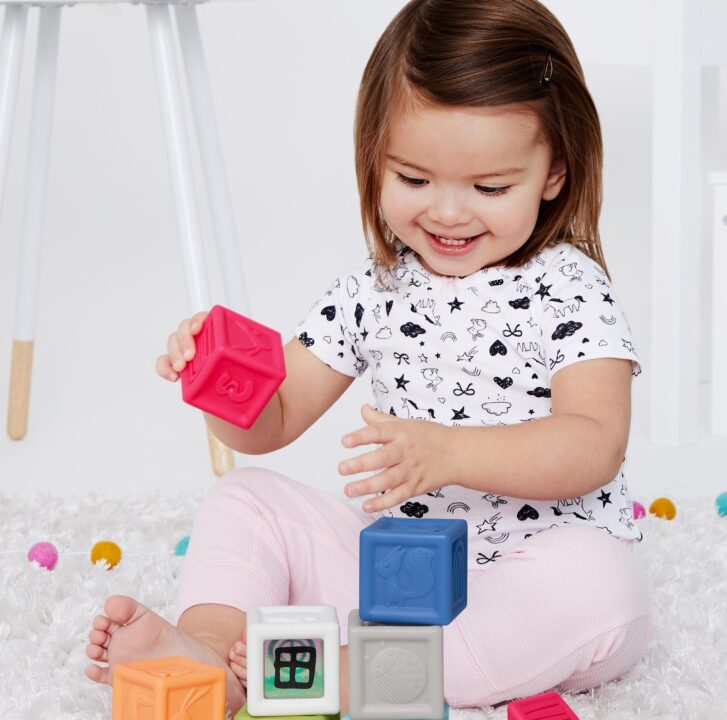
Skills for learning: Part two, Curiosity
By Jenni Watts Evans, October 2018
Encouraging early learning is not just making sure your toddler can name her colors or your kindergartener can count to 100.
Children of all ages learn best when they are engaged and involved in active learning. Knowledge is good, but being motivated to find new information is important for growth.
Anybody remember the scientific method? Let me refresh your memory: Ask a question, research, construct a hypothesis, experiment, analyze, report. It works in science and all sorts of problem solving and projects. The answer is important, but the real learning is in the process and is driven by – [drum roll, please] – curiosity!
Young children build important early learning skills when they have chances to explore and discover through authentic play experiences. Adults who know the answers have a tendency to ignore or rush processes in the pursuit of a good product, which we measured by comparison and testing.
 We may even double down on that focus by offering constant evaluation or judgement in the form of rewards, praise, or criticism. Instead, help your child stay invested in the process by talking about what you see and asking questions about what she is doing. Observe your child playing – alone or with others – and notice how he approaches problems, brings new ideas, and tries different solutions.
We may even double down on that focus by offering constant evaluation or judgement in the form of rewards, praise, or criticism. Instead, help your child stay invested in the process by talking about what you see and asking questions about what she is doing. Observe your child playing – alone or with others – and notice how he approaches problems, brings new ideas, and tries different solutions.
A one-year-old with a box may try to put her hands in it and then her head which involves understanding volume but also her own mobility and that of the box! Three-year-olds may be figuring out how to throw a ball in a hoop AND how to share the space, hoop, and ball with other preschoolers – peer interaction being a new skill that requires lots of practice.
Try to see all of these experiences from a child’s point of view; the more you observe, the more impressed you will be with the number of skills being practiced and mastered.
Build your child’s brain with these tips:
Create a safe and interesting environment for children to play so there are not so many NO’s – messy play needs space, active play should be free from hazards with natural limits like doors or fences.
Add new materials to a favorite activity. Put some textured toys in the one-year-old’s box, add toy animals to the building blocks, give safe scissors and toy cars with playdough to add another dimension to the experience.
Think outside of the box to find new playthings. Guess what item was inducted into the National Toy Museum’s Hall of Fame in 2008 right between the baby doll and the skateboard? The stick! Children should be allowed to handle anything they can safely touch when it comes to nature.
Show your own curiosity! What better way to encourage learning than to model it? Talk about the things around you – automatic doors that have sensors, lights that are different colors, cups that fall when you drop them. Talk, as well, about how things are related – remember “same and different?” No? Then it’s been too long since you practiced thinking like a child! “This song sounds like the one Mommy was playing; it must be a guitar.”
Avoid these ways of inhibiting learning:
Surveillance – Different from observation, when you’re too close to the play but not engaged in the experience, you’re probably engaged in evaluation (read on!).
Evaluation – Play and learning happen best when the limits are loose. Instead of complimenting (That’s beautiful!) or correcting (You can’t put that big one at the top), try narrating (That’s not staying up, I wonder what would work) and asking questions (You used a lot of red! What’s next?).
Comparison – Competition is another way of imposing limits. You can point out similarities and changes without creating goal-oriented play. “That drum is loud and yours is soft.” Instead of, “Look at the picture of the train; the wheels are on the bottom,” simply, “Your picture has four black circles just like this picture of a train!”
Limits and games with rules are, of course, part of life – and part of play. As agents of early learning, we can help young children see the vast choices and opportunities within the limits of safety and consideration so that they remain curious and excited about possibilities.
 Jenni Watts Evans is a parent educator and assistant director at The Parenting Center at Children’s Hospital. For more information and to learn about the parenting groups and classes available, call 504.896.9591, visit theparentingcenter.net or email parenting@chnola.com. Read Part 1 of the learning series: ‘Fostering your Child’s Independence‘.
Jenni Watts Evans is a parent educator and assistant director at The Parenting Center at Children’s Hospital. For more information and to learn about the parenting groups and classes available, call 504.896.9591, visit theparentingcenter.net or email parenting@chnola.com. Read Part 1 of the learning series: ‘Fostering your Child’s Independence‘.

